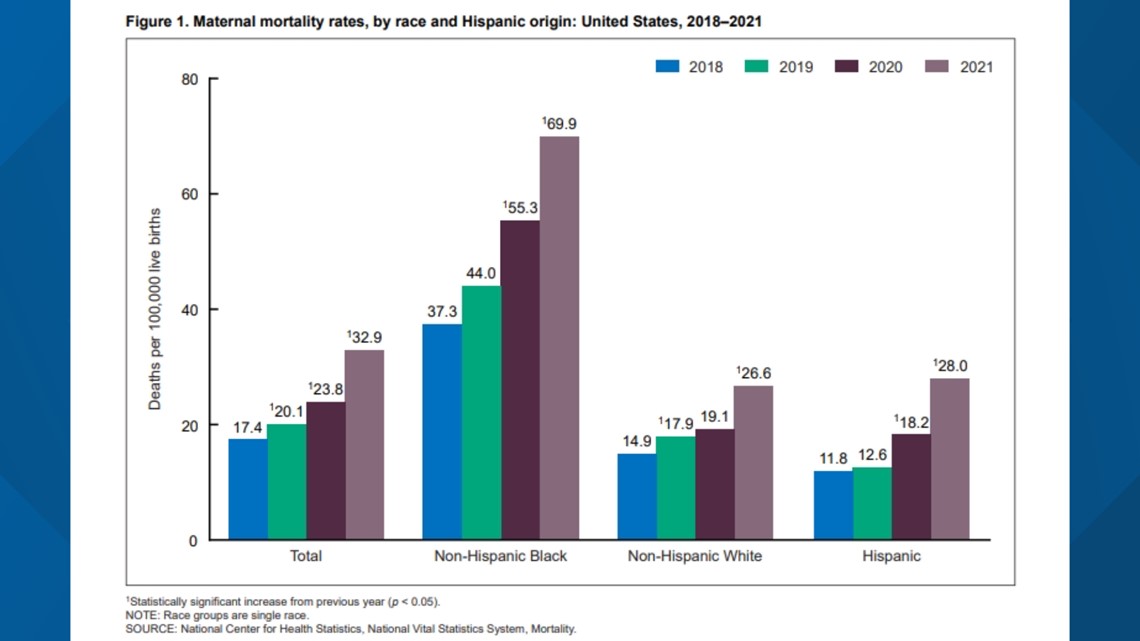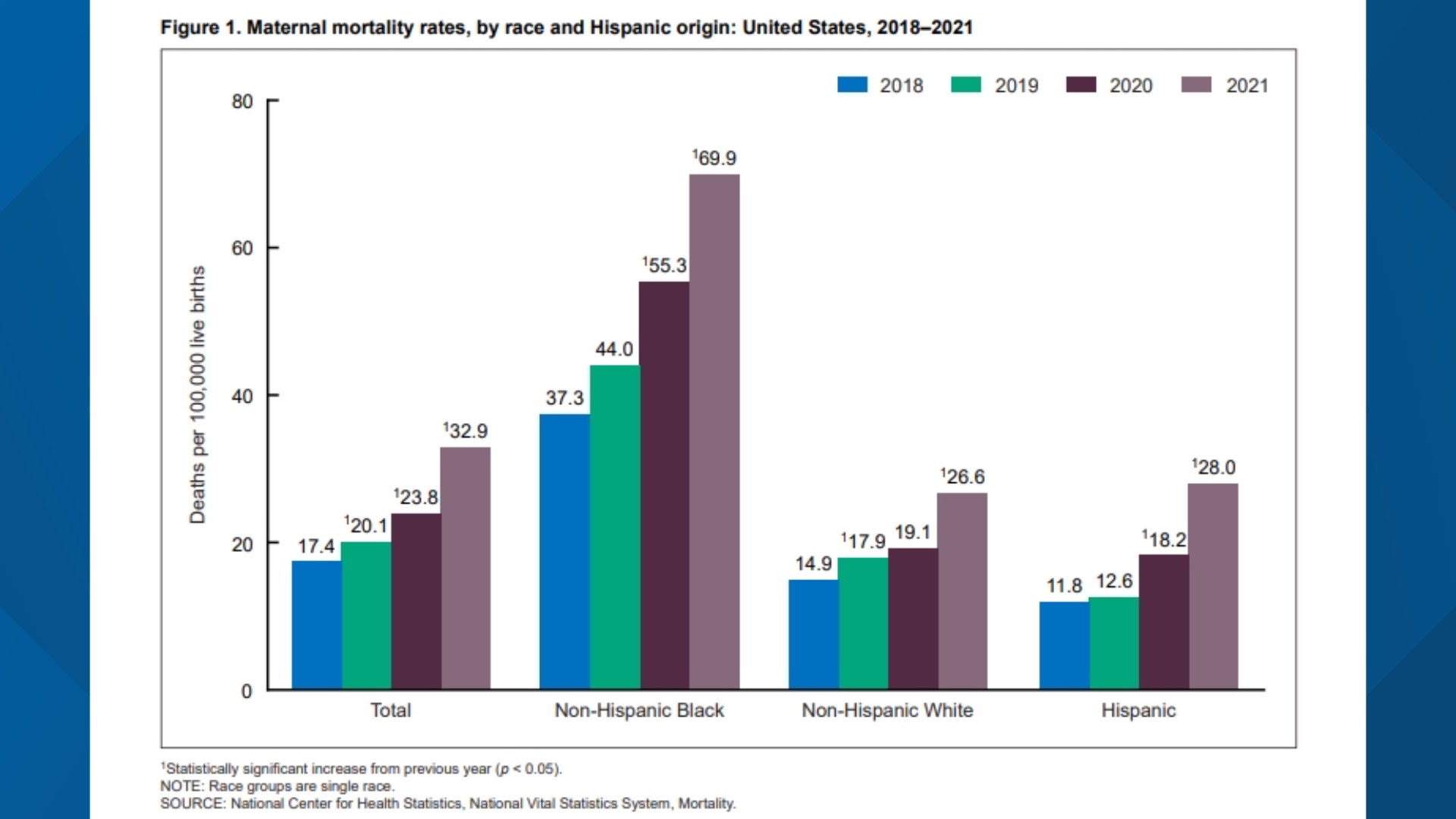YORK, Pa. — Black Maternal Health Week was founded by the Black Mamas Matter Alliance, an organization that advocates for policy change, research and support for Black women.
Several health experts and one Black mother talked with FOX43 about what Black Maternal Health Week means to them.
“Black Maternal Health Week provides the time for individuals and organizations across the country to deepen conversations about Black maternal health, amplify community policy, and research, and really dive into solutions,” said Dr. Sharee Livingston, OBGYN department chair at UPMC.
According to a report from the Centers for Disease Control, the maternal mortality rates for 2021 have increased since 2020. Among those deaths, Black women made up most of the data for deaths and were three times more likely to die compared to non-Hispanic races.


Dr. Tonya Wright, obstetrician and gynecologist at Penn State Health, said the number of pregnancy-related deaths in the U.S. has not decreased for the last three decades. With the deaths being so significant in Black women, Wright said leading causes of death are cardiac and coronary conditions.
“We know that Black women have a higher risk of underlying and pre-existing conditions such as hypertension, diabetes and cardiovascular disease, and we know that more women are more likely to have limited access to care, especially in the pre-pregnancy period,” said Wright.
Shaneice Felder, a new mother and nurse, has type 2 diabetes and lupus. She also suffered from renal failure before receiving two kidney transplants. While having these pre-existing conditions, Felder became pregnant with her first child and had a difficult pregnancy.
“Pregnancy is a beautiful thing, and everyone thinks they’re going to get pregnant, they’re going to have the perfect pregnancy and deliver a healthy baby, but unfortunately for a lot of Black women, that’s not how the story goes,” said Felder.
At 26 weeks, Felder was diagnosed with preeclampsia and admitted to the hospital for the full term of her pregnancy. According to the American Heart Association, preeclampsia is one of the leading causes of maternal death worldwide and is 60% more common in Black women.
“I cried, I didn’t want to be there, I was thinking about my baby shower, all of the things that really didn’t matter at first,” said Felder.
Felder said the maternal mortality for women of color in her position was overwhelming, but she knew she had to advocate for her and her baby's safety. With the help of Dr. Livingston, her Diversifying Doula Initiative and the providers of UPMC, Felder was able to deliver a healthy and happy baby named Zara.


“I never thought I was going to get the opportunity to have a child, and having Zara, I feel like it’s given me more purpose in life… I would do it all over again,” said Felder.
Medical experts say there are factors that do contribute to maternal mortality in Black women outside of the hospital.
Dr. Carlos Roberts is the vice president and chief medical officer at the Women and Children Service Line at Wellspan Health. Roberts told FOX43 there is no one root cause to this issue, but rather there are many factors that may impact pregnancy in Black women.
“Anytime there’s a disproportion among populations, you will see disparities,” said Roberts. “I would also talk about food insecurity, housing insecurity, other things that really impact the outcomes of your health more than seeing your provider in the hospital …About 80% of your health outcome are really focused around things that don’t happen in the hospital or in your doctor's appointment.”
A study conducted by the National Women’s Law Center also showed that women of color are disproportionately impacted by the economic hardships of COVID-19. The report says 57.1% of Hispanic women and 53.6% of Black women say they lost income, and more than one in six Black and Hispanic women reported not having enough food in the past week.
A solution echoed by all three doctors was to have a conversation about Black maternal health and mortality and make policy changes.
Dr. Livingston said she provides doulas to expecting mothers for free through her Diversifying Doula Initiative. Dr. Wright is also starting the conversation by having a panel of experts convene to answer questions for new or expecting moms of color. Dr. Roberts said they’re collaborating with primary care and internal medicine to focus on improving the health of patients at reproductive age to prevent problems in the future.


